Review for The Boys
I'm a huge fan of British cinema of the fifties and sixties and have spent the last twenty or so years ensuring that none pass me by. Despite this, every now and then a missing gem will appear like a long lost nugget, waiting to re-establish its rightful position in the history of UK film-making. 'The Boys' is one such gem.
For starters, it's chock-a-block full of period British talent like Robert Morley, Richard Todd, Dudley Sutton, and Jess Conrad (yes - the singer), along with cameos from Wilfred Brambell, Roy Kinnear and Patrick Magee, as well as a soundtrack by none other than 'The Shadows'. But a rock 'n roll party flick this is not. In fact, despite a typically hammy performance from Morley, this film has more in common with gritty British realist cinema ('Cathy go home') than with good time musical comedy.
This is a moralistic courtroom drama with more than one twist in the tale. Four likely lads are implicated in the murder of a night watchman at a garage, which seemed to happen whilst they were in the neighbourhood, and after an evening of seeming misdemeanours. Robert Morley plays their defence lawyer who tries to convince the jury to be charitable. However, prosecuting Counsel Richard Todd means to make out that the boys aren't the innocent victims of society that Morley makes them out to be.
What's nice about the film is that it plays out the different witness stories from two points of view; both from the seemingly prejudiced point of view of each of the witnesses, and then from the point of view of the inarticulate youths themselves. Again and again, the stories differ slightly, bringing a modicum of reasonable doubt to the accusations. Though that's not to say that everything is as it seems, but I'm not going to spoil that for you here.
It's all terribly earnest and moralistic, but thoroughly entertaining nonetheless, possibly offering up a gentle critique of the death sentence still meted out to murderers in Britain over the age of 18.
It's all ably directed by Sidney J. Furiew who, having moved from Canadian TV, was just sharpening his act before turning in the classic 'The Ipcress File'.
There are some fascinating peeks into a grimy pre-Beatle era London with some of the east-end location shots.
The transfer here is fine with a satisfyingly high contrast black and white image. The disc is presented with no extra features.
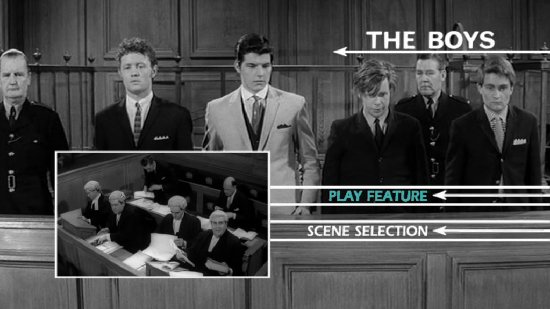
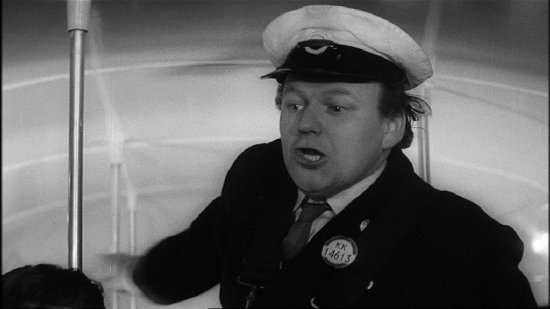
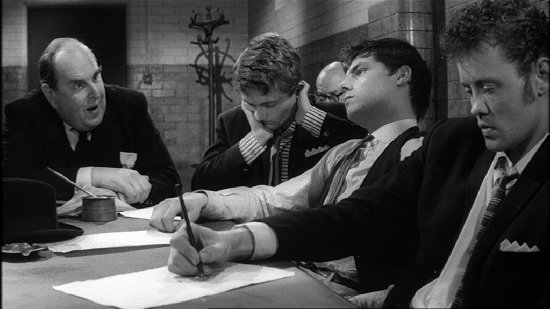
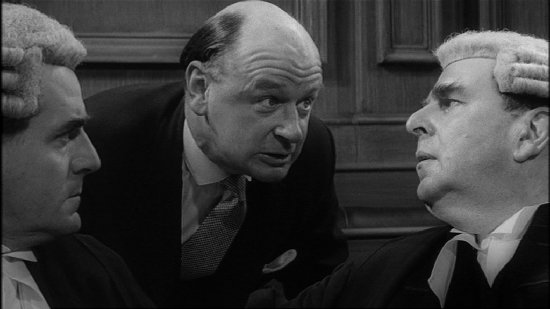
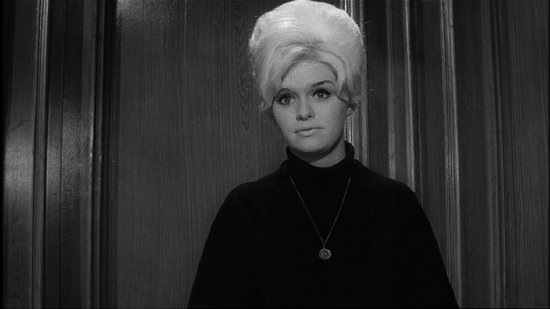
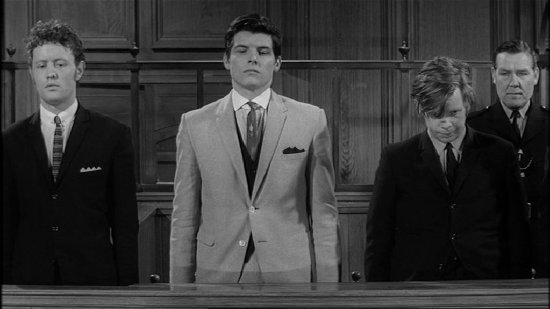
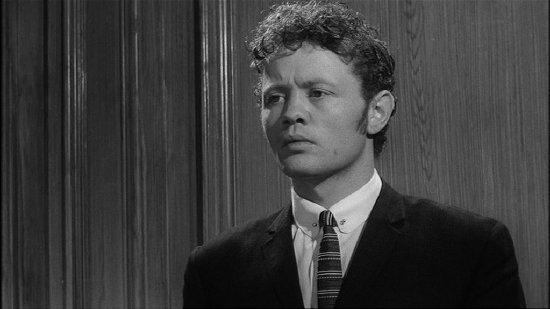
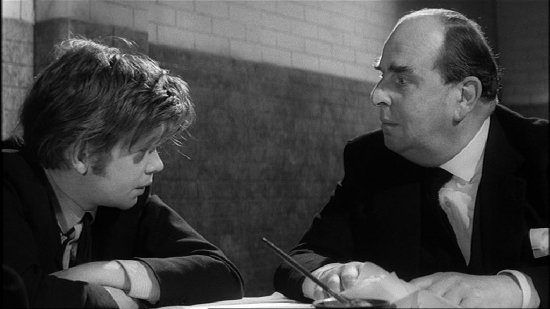
Your Opinions and Comments
Be the first to post a comment!